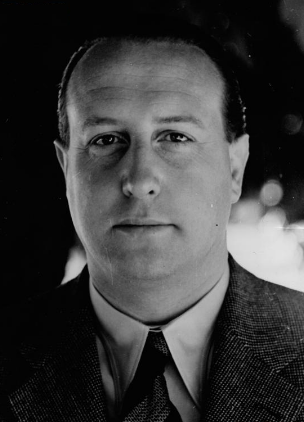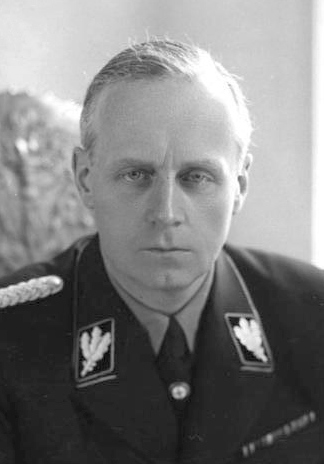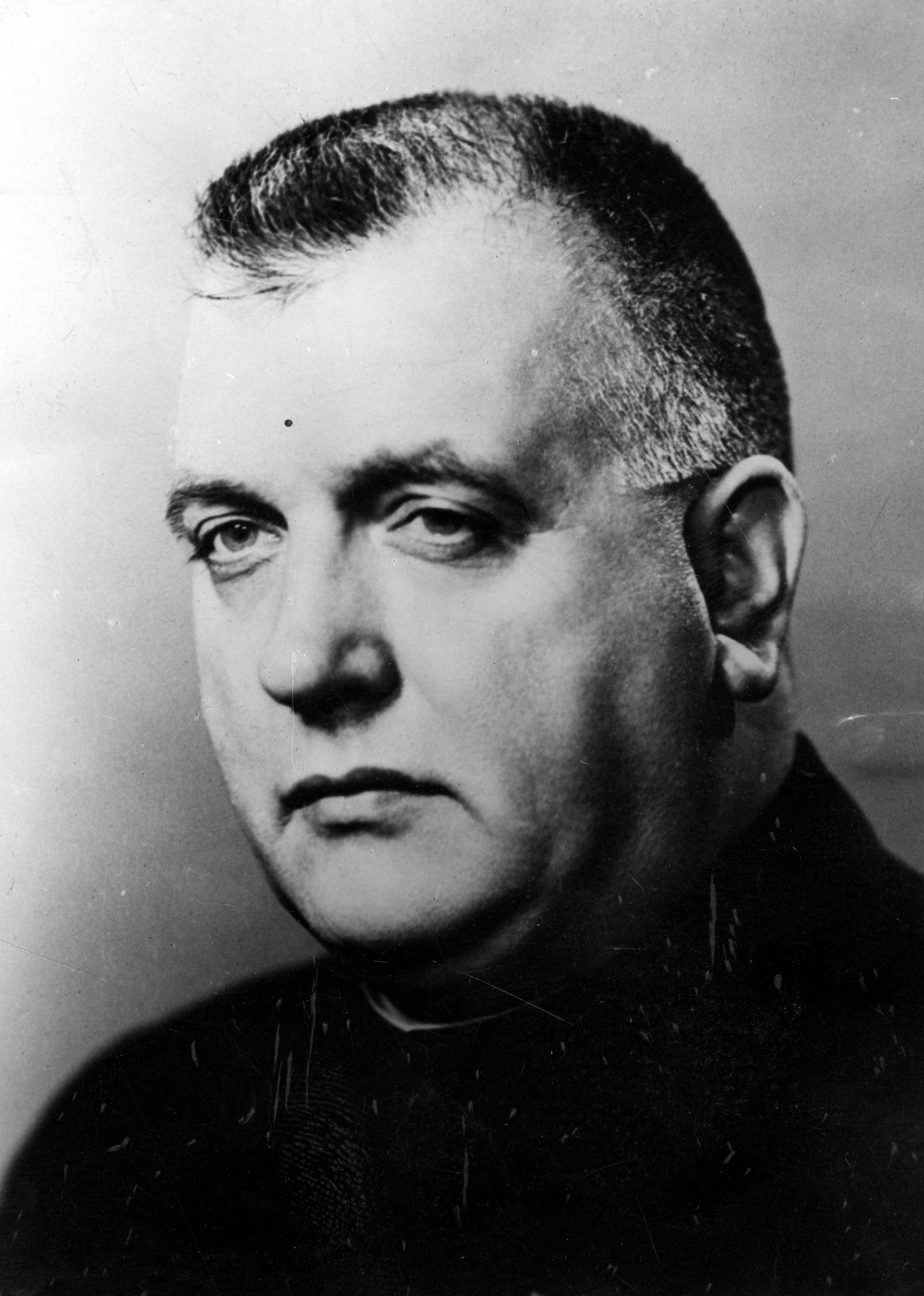13 March 39
CONFERENCE BETWEEN, THE FUEHRER AND THE SLOVAK PRIME MINISTER TISO In the study of the Fuehrer in the New Reich Chancery from 18.40-19.15 hours, 13 March 1939 Other persons present were:
The Reich Minister for Foreign Affairs
Minister of State Meissner
General Keitel
State Secretary Dietrich
State Secretary Keppler
Minister Durcansky
The Fuehrer greets Prime Minister Tiso and describes to him in a long detailed account the developments in Czechoslovakia. Since the autumn of last year Germany had experienced two disappointments. One was with regard to Czechoslovakia, partly because of ill-will, partly as, for example, in the case of Chval-kowsky, who out of weakness could not prevent the development of political circumstances which were intolerable to Germany. Czechoslovakia had only Germany to thank that she had not been mutilated further. With the greatest forebearance Germany had renounced claims to the islands of German speech (Spraeh-insel) lying on her borders in order to assure to Czechoslovakia a normal living space. There had been no thanks for this. No Czech had lost his job in Germany. On the contrary, numerous Czechs had been received by us. Not a hair of these persons'
443
2802-PS
heads had been ruffled, nor had they been insulted or attacked. It was envisaged quite differently on the Czech side. The sternest dismissal measures had been carried out against Germany; thousands had found themselves without means of earning their bread. Everywhere Germans. had been provoked or discriminated against. The Germans had been subject to constant surveillance so that their situation was now worse than before the September crisis. This development was not in accordance with the agreements. Until the day before yesterday Germany had striven for an absolutely loyal attitude in the press. It (the press) had been restrained and had not mentioned many things which had happened there'in order to maintain a wholesome atmosphere. During this time the Czech press had repeatedly published unfavorable things about Germany; certain organs had not ceased their systematic agitation. Pamphlets and propaganda by word of mouth had been continuous. The momentary situation was described to the Czechs as a temporary affair; time and again hopes based on a change to the disadvantage of Germany had been awakened in the people. The Fuehrer had already spoken of this to Chvalkowsky and reproached him that oil had continuously been thrown on to the fire. Central Europe . was a fixed, closed economic area which could only live when fully pacified. It needed pacification. Geographically the situation was made clear by the fact that Bohemia and Moravia were enclosed by Germany, and Germany could never tolerate in her own territory a hot-bed of unrest. '
In recent weeks the circumstances had become unbearable. The old spirit of Benes had again been revived. The Czech people had been incited to resistance. Conditions were insecure and tumultuous. Yesterday incidents in Bruenn and Iglau occurred. While we had treated the Czechs in Germany well, the situation in Czechoslovakia was unstable; Germany could no longer permit those conditions. Likewise, German nationals over there were defending themselves, as they did not see why things should be worse now- than before.
We had solved the Czech question then according to our world interpretation. If, however, this solution leads to no results, then we have decided absolutely to pursue it to its conclusion, without consideration for this ideological principle,
The second disappointment for us was the attitude of Slovakia. In the past year the Fuehrer had had to face a difficult decision, whether or not to permit Hungary to occupy Slovakia. The Fuehrer had been under a wrong impression as he had, of course, believed that Slovakia wished to be annexed to Hungary. This
444
2802-PS
error was founded on the fact that Slovakia was further away from Germany and on the importance of the more serious problems which then overshadowed this problem. It was only in the crisis that the Fuehrer was dissuaded from this opinion. It was then that he first heard and noted that Slovakia wished to conduct her own affairs.
At Munich the Fuehrer did not play power politics in his decisions, but took the line of national politics. He did something which alienated some of his friends in Hungary from him, namely he restrained those who wished to carry out this principle for Hungary also. He had repeatedly explained this some months previously.
Now he had sent Keppler as his minister to Pressburg, to whom Sidor had declared that he was a soldier of Prague and would oppose a separation of Slovakia from the, Czechoslovak Union. If the Fuehrer had known this earlier, he would not have needed to antagonize his friends, Hungary, but, on the contrary, would have let events follow the' course they were then taking.
Now he had permitted Minister Tiso to come here in order to make this question clear in a very short time. Germany had no interests east of the Carpathian mountains. It was indifferent to him what happened there. The question was whether Slovakia wished to conduct her own affairs or not. He did not wish for anything from Slovakia. He would not pledge his people or even a single soldier to something which was not in any way desired by the Slovak people. He would like to secure final confirmation as to what Slovakia really wished. He did not wish that reproaches should come from Hungary that he was preserving something which did not wish to be preserved at all. He took a liberal view of unrest and demonstration in general, but in this connection unrest was only an outward indication of interior instability. He would not tolerate it and he had for. that reason permitted Tiso to come in order to hear his decision. It was not a question of days, but of hours. He had stated at that time that if Slovakia wished to make herself independent he would support this endeavor and even guarantee it. He would stand by his word as long as Slovakia would make it clear that she wished for independence. If she hesitated or did not wish to dissolve the connection with Prague, he would leave the destiny of Slovakia to the mercy of events, for which he was no longer responsible. In that case he would only intercede for German interests and those did not lie east of the Carpathians. Germany had nothing to do with Slovakia. She had never belonged to Germany.
€93250—4 0-29
445
2802—PS
2802-PS
The Fuehrer asked the Reich Foreign Minister if he had aiiy remarks to add. The Reich Foreign Minister also emphasized for his part the conception that in this case a decision was a question of hours not of days. He showed the Fuehrer a message he had just received which reported Hungarian troop movements on the Slovak frontiers. The Fuehrer read this report, mentioned it to Tiso, and expressed the hope that Slovakia would soon decide clearly for herself.
Tiso thanked the Fuehrer for his words. He had for some time longed to hear from the Fuehrer himself how he (the Fuehrer) stood in relation to his (Tiso's) people and country and how he regarded the problems. He took note of the statement, and gave, the assurance 'that the Fuehrer could rely on Slovakia. He wished to be excused for the fact that under the impression made by the Fuehrer's words he could not clearly express his opinion at that moment or could hardly make a decision. He wished to withdraw with his friend and to think the whole question over at his ease; they would; however, show that they were worthy of the Fuehrer's care and- interest for their country. With that the conversation was ended.
Signed: Hewel
Summary of meeting of Hitler and Tiso (Slovak prime minister), and others, on Czech mistreatment of Germans and the issue of Slovak autonomy or independence from Czechoslovakia
Authors
Hewel (German diplomatic officer (1939))
Walther Hewel
German diplomat (1904-1945)

- Born: 1904-01-02 (Cologne)
- Died: 1945-05-02 (Berlin)
- Country of citizenship: Germany
- Occupation: diplomat; politician
- Member of political party: Nazi Party (since: 1933-01-01)
- Member of: Schutzstaffel; Stoßtrupp Adolf Hitler
- Participant in: Beer Hall Putsch
- Military branch: Schutzstaffel
Adolf Hitler (Fuehrer, Reich Chancellor, Supeme Commander of Wehrmacht)
Adolf Hitler
Austrian nationalized German politician, leader of the National Socialist party and dictator of Germany (1889-1945)

- Born: 1889-01-01 1889-04-20 (Braunau am Inn) (country: Austria-Hungary; located in the administrative territorial entity: Archduchy of Austria above the Enns; statement is subject of: Adolf-Hitler-Geburtshaus)
- Died: 1945-04-30 (Berlin Führerbunker) (country: Nazi Germany; located in the administrative territorial entity: Berlin; statement is subject of: death of Adolf Hitler)
- Country of citizenship: Cisleithania (period: 1889-04-20 through 1918-11-11); First Republic of Austria (period: 1919-01-01 through 1925-04-30); Nazi Germany (end cause: death of Adolf Hitler; period: 1933-01-30 through 1945-04-30); Republic of German-Austria (period: 1918-01-01 through 1919-01-01)
- Occupation: painter (statement is subject of: paintings by Adolf Hitler); political writer; politician (reason for preferred rank: generally used form); soldier
- Member of political party: German Workers' Party (period: 1919-09-12 through 1921-07-11); Nazi Party (series ordinal: 556)
- Member of: Nazi Party
- Participant in: Aktion T4; Beer Hall Putsch; The Holocaust; ethnic cleansing
- Significant person: Albert Speer; Benito Mussolini; Eva Braun; Joseph Stalin
Joachim Ribbentrop, von (Minister for Foreign Affairs (1938-45))
Joachim von Ribbentrop
German Foreign Minister of Nazi Germany (1893–1946)

- Born: 1893-04-30 (Wesel)
- Died: 1946-10-16 (Nuremberg)
- Country of citizenship: Germany
- Occupation: diplomat; politician
- Member of political party: Nazi Party
- Member of: Schutzstaffel; Travellers Club
- Participant in: International Military Tribunal (role: defendant)
- Military rank: Oberleutnant
Josef Tiso (Dr., Slovak foreign minister and president (1939))
Josef Tiso
president of the First Slovak Republic (1937–1945)

- Born: 1887-10-13 (Bytča) (country: Austria-Hungary; located in the administrative territorial entity: Kingdom of Hungary)
- Died: 1947-04-18 (Bratislava) (country: Czechoslovakia)
- Country of citizenship: Czechoslovakia; Kingdom of Hungary (period: 1887-10-13 through 1918-11-16); Slovak Republic
- Occupation: Catholic priest; diarist; essayist; military officer
- Member of political party: Slovak People's Party
- Position held: President of Slovakia (period: 1939-10-26 through 1945-04-03)
- Educated at: University of Vienna
- VIAF ID: https://viaf.org/viaf/35252828
Date: 13 March 1939
Literal Title: Conference between the Fuhrer and the Slovak Prime Minister Tiso in the Stufy of the Fuehrer in the New Reich Chancery from 18.40 - 19.15 hours, 13 March 1939.
Defendant: Joachim Ribbentrop, von
Total Pages: 3
Language of Text: English
Source of Text: Nazi conspiracy and aggression (Office of United States Chief of Counsel for Prosecution of Axis Criminality. Washington, D.C. : U.S. Government Printing Office, 1946.)
Evidence Code: PS-2802
Citations: IMT (page 2342), IMT (page 6871)
HLSL Item No.: 451914
Notes:Hewel wrote the summary, recording Hitler's statements and comments by Ribbentrop and Tiso. Another copy of PS 2802 had been entered as US exhibit 117; this copy was used with the same exhibit number.
Trial Issue
Document Summary
PS-2802: Photostatic copy of record of meeting between Hitler and the Slovak Prime Minister Tiso
PS-2802: Discussion between Hitler and Slovak premier Tiso, 13 March 1939: Hitler’s view of the Czech attitude; he demands immediate decision by Slovakia whether or not she intends to secede from the Czech state
PS-2802: Notes, signed by Hewel, of a Conference of March 1939 between Hitler and Monsignor Tiso, Prime Minister of Slovakia.
Notes, signed by Hewel, of a Conference of 13 March 1939 between Hitler and Monsignor Tiso, Prime Minister of Slovakia.
PS-2802: PLANNING AND PREPARATIONS -- Slovak autonomy movement -- German ultimate demands for Slovak independence -- Neurath oral evidence / PREPARATIONS -- and SA activities since 1932 -- Slovak autonomy movement -- directed by Germany / SLOVAKS -- German pressure to break connections with Prague, Ribbentrop’s attitude / GENERAL STAFF AND HIGH COMMAND -- -- Remainder, plans to liquidate -- border incident / GENERAL STAFF AND HIGH COMMAND -- Czechoslovakia: Aggression against -- - Remainder, plans for the liquidation of -- Prosecution final statement / CZECHOSLOVAKIA -- activities. ..I-334; III-69, 150; VII-200, 201 [K. H, Frank testimony -- Foreign penetration -- "Deutsche Heimatfront" / FIFTH COLUMN AND FOREIGN PENETRATION -- Prague / CZECHOSLOVAKIA -- -- _ Slovak autonomy movement -- as a pretext for German intervention